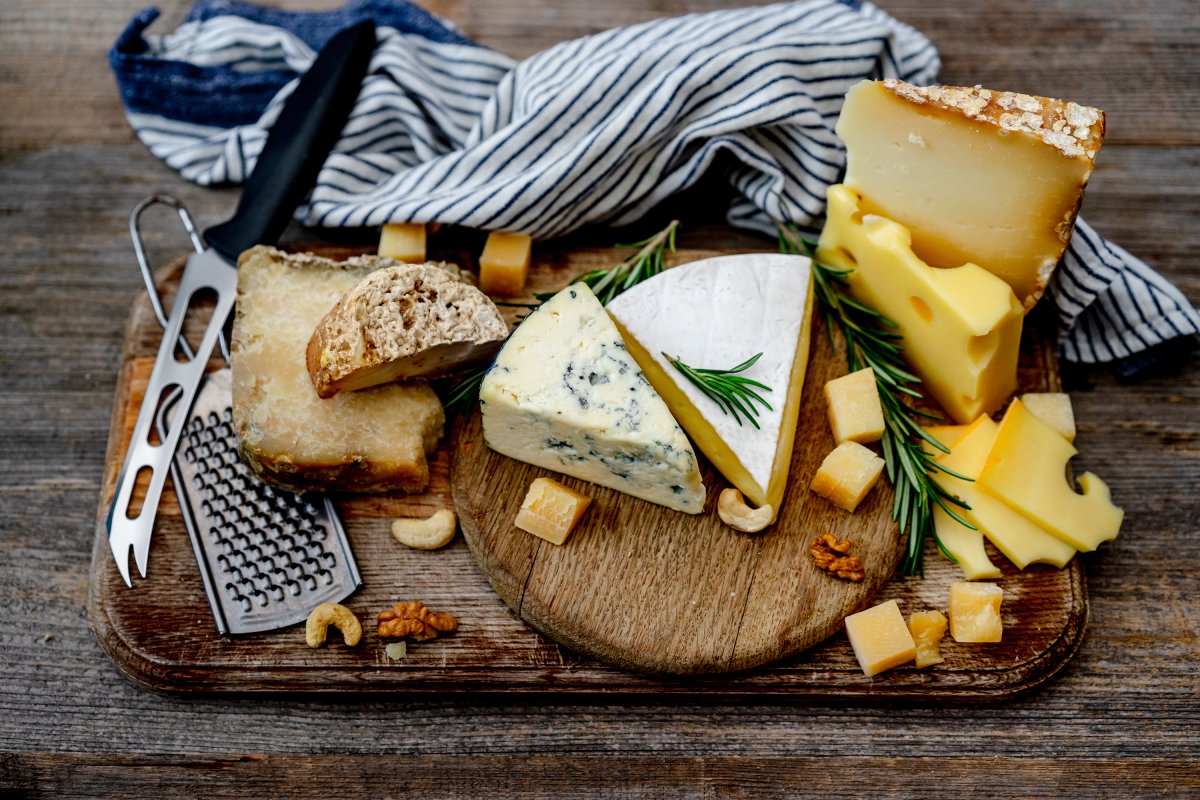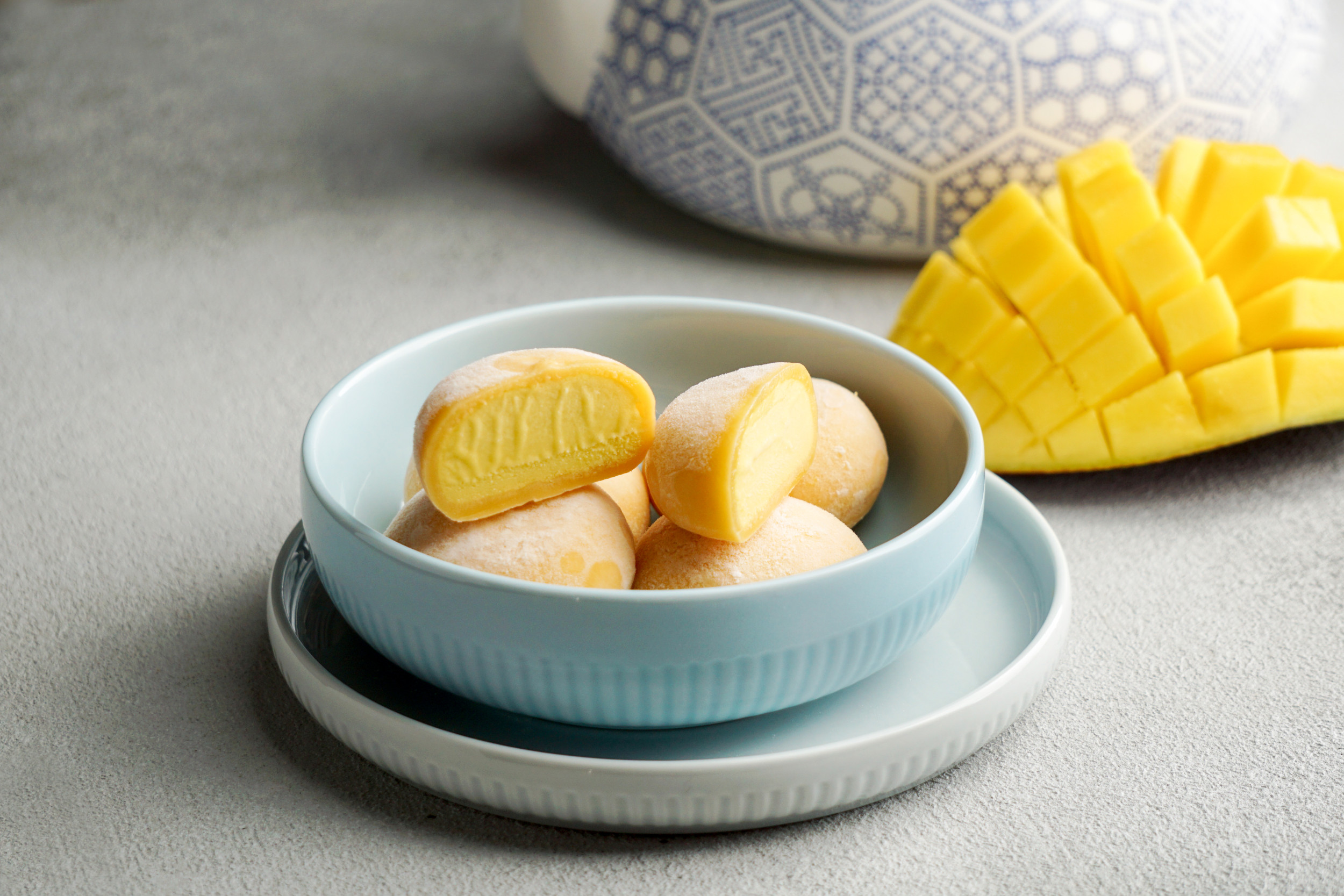For many, the festive period was all about indulging in delicious food and enjoying time with loved ones, often ending the day with an unbuttoned top and a spot on the sofa. Now, more than 10 days later, many people may still feel bloated and sluggish from the festivities.
You might still have snacks lingering in the pantry, or perhaps your body has adapted to the holiday habit of overindulging, leaving you with an uncomfortable, bloated feeling. Newsweek spoke to Dr. Leke Asong, a gut health specialist, and Dr. Tim Spector, a scientist, to find out how you can reduce post-holiday bloating.
Spector said: "If you've over-indulged over the holiday season, bloating can be a common issue but the solution often lies in simple daily habits. Eating a diverse variety of fibre-rich foods and getting your 30 plants a week, staying hydrated and incorporating fermented foods to give your gut microbes a boost."

Bloating is common in the U.S., affecting one in seven people weekly, according to research from last year. Experts explained that alcohol and processed foods were significant contributors to that uncomfortable feeling of fullness or tightness in the abdomen, caused by excess gas in the intestines. During Christmas, these culprits were in abundance, but cakes, bread and booze weren't the only things to blame.
Stress
"We are all stressed during the festive season," said Asong, the Gut Health Medic, who works for Britain's National Health Service (NHS) and as a specialist, using functional medicine to boost gut health.
Indeed, 41 percent of 2,061 adults who participated in a 2023 poll by the American Psychological Association said their stress levels increase at this time of year.
Financial concerns were most often cited as a cause of stress during the holidays, followed by finding the right gifts and the stress of missing family or loved ones. But for some, the stress doesn't disappear, leaving people with "post-holiday blues."
"Stress has multiple effects on the body as it reduces stomach acid, digestive enzyme production, and bowel motility," Asong told Newsweek. "All of these lead to bloating."
You can reduce stress by planning ahead, exercising, and trying adaptogens, which are herbs or natural substances that help your body deal with stress while supporting metabolic function to restore balance.
'It's All About Quality'

Spector, a King's College London professor and co-founder of the science and nutrition company ZOE, explained how people should focus on quality over quantity when it comes to their food menu.
He explained that cheese could be a surprisingly gut-friendly option when chosen wisely.
"Some cheeses, particularly those that had been properly aged, contained beneficial probiotics that supported gut health. These live bacteria helped to convert lactose into lactic acid, and when not overheated, they remained intact. Think of varieties like Swiss, aged cheddar, Gouda, or Parmesan," he said.
"As for bread and crackers, it was all about quality," he explained, adding that mass-produced products were highly processed and contained artificial additives and less fiber.
He also recommended opting for breads and crackers made with whole grains like oats, barley, or quinoa, which were much better for gut and overall health. He also suggested making homemade sourdough bread.
Alcohol

According to a January 2017 article in Alcohol Research: Current Reviews,alcohol disrupts the balance of gut bacteria, leading to a condition called dysbiosis.
This imbalance allows harmful bacteria to grow and release toxins, which can trigger inflammation in the body. It can also cause stomach bloating lasting for several days or weeks by irritating the gastrointestinal tract, increasing stomach acid production, and triggering inflammation of the stomach lining, a condition known as gastritis, which leads to bloating and discomfort.
"Alcohol is pro-inflammatory and can impact gut health," Spector said. "If you are going to drink alcohol and you have a choice, I'd pick one that's high in defense polyphenols that are good for your microbes, like a glass of red wine or an artisan or unfiltered cider."
He advises no more than two glasses with your meal and drinking plenty of water too.
"I always recommend having some great non-alcoholic options too, like kombucha. It's packed with live microbes, which can be great for your gut health, and it's increasingly easy to find at most places these days," he said.
Meat
For meat-lovers, December was often filled with different meats, but Spector warned against processed and red meats, as they could "be harmful if over-consumed." Instead, he suggested high-quality meats like serrano or Parma ham.
According to a 2021 Statista survey on Christmas meals, chicken emerged as the most popular entree, favored by 59.5 percent of U.S. adults, followed by fish (41.4%) and various beef dishes. Ham was the least preferred option.
Sweet Treats

The above survey found apple pie was deemed essential by 46.3 percent of respondents, with chocolate chip cookies as the second favorite, narrowly ahead of fruitcake, which was chosen by 35.8 percent.
Spector suggests dark chocolate over 70 percent cocoa with minimal ingredients as a healthier option along with nuts.
"They're an excellent source of fiber, polyphenols and healthy fats, all of which are beneficial for your gut microbiome," he said.
How to Reduce Bloating
If you indulged in any of the above and are still feeling the after effects, Spector suggests focusing on two key things to help your body recover:
- Gentle Movement: Activities like walking can help stimulate your digestive system and ease discomfort.
- Consistency and Patience: Allow your body and gut the time they need to bounce back.
"The good news is that our microbes and gut health can recover without much effort, but the rewards are significant," Spector said.
![SOURCE SPORTS: [WATCH] Mets Capt. David Wright Gives Interesting Insight On The Honor Of His Jersey Retirement In Citi Field](https://thesource.com/wp-content/uploads/2025/01/01fs75fy836w8mp4ytwr.webp)



















 English (US) ·
English (US) ·